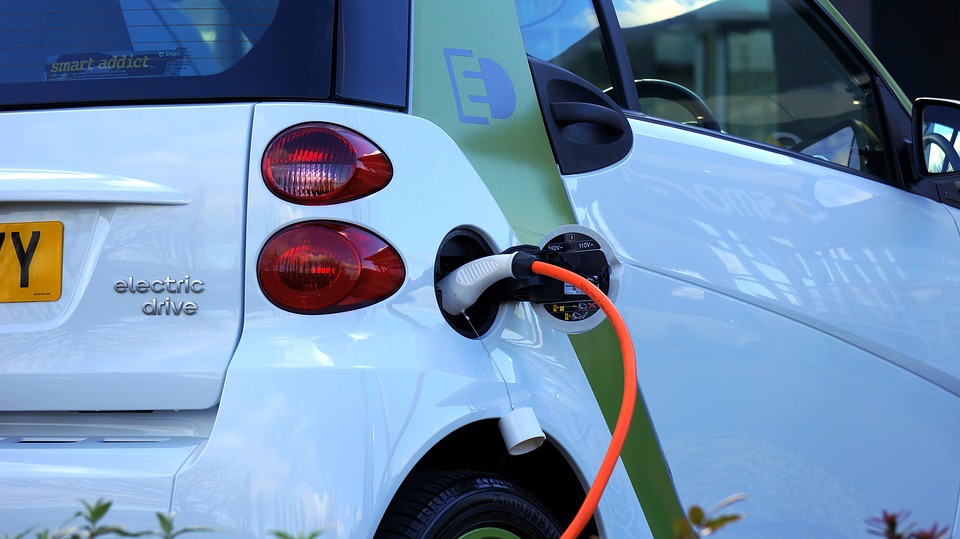In November, American Tesla introduced an electric truck called Semi. The truck will be able to drive about 500 km on one charge and will be unmanned. Production should begin as early as 2019. The price for a truck with a basic configuration will amount $ 150 thousand, and there is also a version with more powerful battery, enough to travel 800 km. It will cost $ 180 thousand.
The supermarkets chain Walmart has already made a preliminary order for 15 Tesla trucks, and German logistics company DHL has already ordered ten trucks. In total, about 200 Semi have already been ordered.
Traditional automakers are also going to produce electric trucks. In September, Daimler announced its intention to begin production of the first own electric truck Fuso eCanter. They are designed in the "freight" division of Mitsubishi Fuso Truck and Bus, and their production should begin in 2019.
Together with the American manufacturer of buses and trucks Navistar International, Volkswagen is going to present an electric truck that can transport 18 tons of cargo by the end of 2019. One charge will be enough for 180 km. In August, American engine manufacturer Cummins also introduced an electric truck. Its release is planned to begin also in 2019. The car will be equipped with a battery, which will allow a 22-ton trailer to be carried on one charge about 160 km.
Tesla’s founder Elon Musk said that the cost per mile of his electric truck run would be $ 1.26 against $ 1.51 for conventional diesel trucks. But not everyone agrees that electric trucks are an economical and efficient mode of transport.
British consulting company Aurora Energy Research estimates that Tesla needs 1600 kW of electricity to recharge. As the general director of the company John Feddersen said that this amount of energy is sufficient for lighting 3-4 hours of medium-sized houses within half an hour.
Tesla has been building so-called "supercharges" for several years now – these are stations that allow fast charging of electric vehicles. Simultaneously with the presentation of Semi, the company introduced a more powerful "mega-charge" designed for trucks. According to Tesla’s plans, cahriging of an electric truck will take 30 minutes, yet some experts doubt that this is possible. "The fastest charging now can support charging up to 450 kW, so it's unclear how Tesla is going to achieve the desired charging rate," said Colin McKerracher from Bloomberg New Energy Finance.
According to Mr. Feddersen, the example of the Tesla truck raises the question of how the infrastructure as a whole will have to change in the spread of electric transport. "There are clever and silly ways to integrate this level of required capacity into the system, but in any case, fully electric road transport will require a large amount of new infrastructure," he said.
According to the British energy company National Grid, the additional demand for electric power associated with the spread of electric vehicles can reach 18 GW, which corresponds to the power produced by six nuclear power plants similar to the British Hinckley Point. The peak of this energy consumption should come in the 2050s. According to the National Grid, by 2050, 90% of all cars in the UK will be electric.
However, the amount of electric power required for electric vehicles can be significantly reduced by the introduction of new technologies. Among them is "smart charging", which will charge the machines not at peak times, when it is difficult the electricity network to cope with the load.
source: bloomberg.com
The supermarkets chain Walmart has already made a preliminary order for 15 Tesla trucks, and German logistics company DHL has already ordered ten trucks. In total, about 200 Semi have already been ordered.
Traditional automakers are also going to produce electric trucks. In September, Daimler announced its intention to begin production of the first own electric truck Fuso eCanter. They are designed in the "freight" division of Mitsubishi Fuso Truck and Bus, and their production should begin in 2019.
Together with the American manufacturer of buses and trucks Navistar International, Volkswagen is going to present an electric truck that can transport 18 tons of cargo by the end of 2019. One charge will be enough for 180 km. In August, American engine manufacturer Cummins also introduced an electric truck. Its release is planned to begin also in 2019. The car will be equipped with a battery, which will allow a 22-ton trailer to be carried on one charge about 160 km.
Tesla’s founder Elon Musk said that the cost per mile of his electric truck run would be $ 1.26 against $ 1.51 for conventional diesel trucks. But not everyone agrees that electric trucks are an economical and efficient mode of transport.
British consulting company Aurora Energy Research estimates that Tesla needs 1600 kW of electricity to recharge. As the general director of the company John Feddersen said that this amount of energy is sufficient for lighting 3-4 hours of medium-sized houses within half an hour.
Tesla has been building so-called "supercharges" for several years now – these are stations that allow fast charging of electric vehicles. Simultaneously with the presentation of Semi, the company introduced a more powerful "mega-charge" designed for trucks. According to Tesla’s plans, cahriging of an electric truck will take 30 minutes, yet some experts doubt that this is possible. "The fastest charging now can support charging up to 450 kW, so it's unclear how Tesla is going to achieve the desired charging rate," said Colin McKerracher from Bloomberg New Energy Finance.
According to Mr. Feddersen, the example of the Tesla truck raises the question of how the infrastructure as a whole will have to change in the spread of electric transport. "There are clever and silly ways to integrate this level of required capacity into the system, but in any case, fully electric road transport will require a large amount of new infrastructure," he said.
According to the British energy company National Grid, the additional demand for electric power associated with the spread of electric vehicles can reach 18 GW, which corresponds to the power produced by six nuclear power plants similar to the British Hinckley Point. The peak of this energy consumption should come in the 2050s. According to the National Grid, by 2050, 90% of all cars in the UK will be electric.
However, the amount of electric power required for electric vehicles can be significantly reduced by the introduction of new technologies. Among them is "smart charging", which will charge the machines not at peak times, when it is difficult the electricity network to cope with the load.
source: bloomberg.com



















